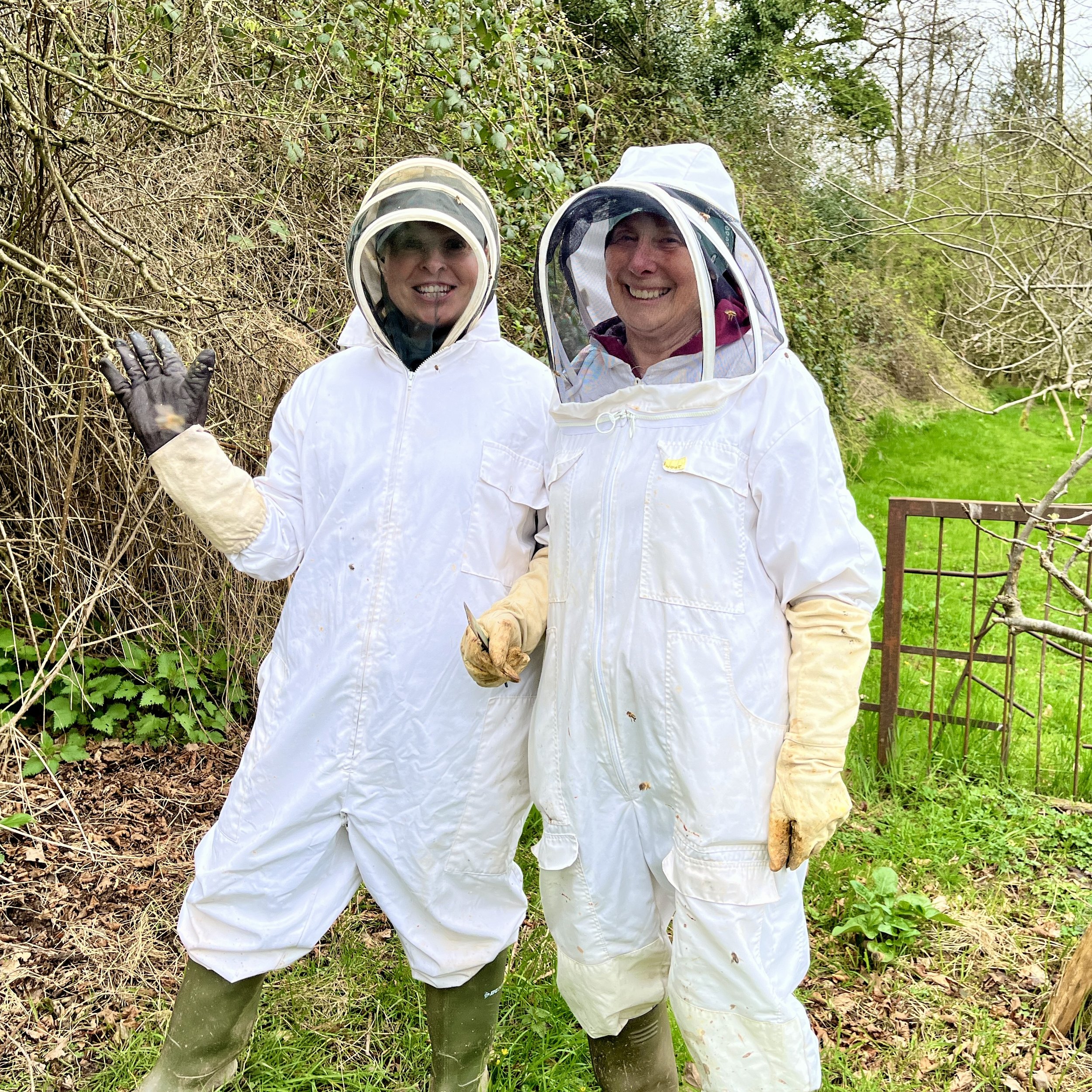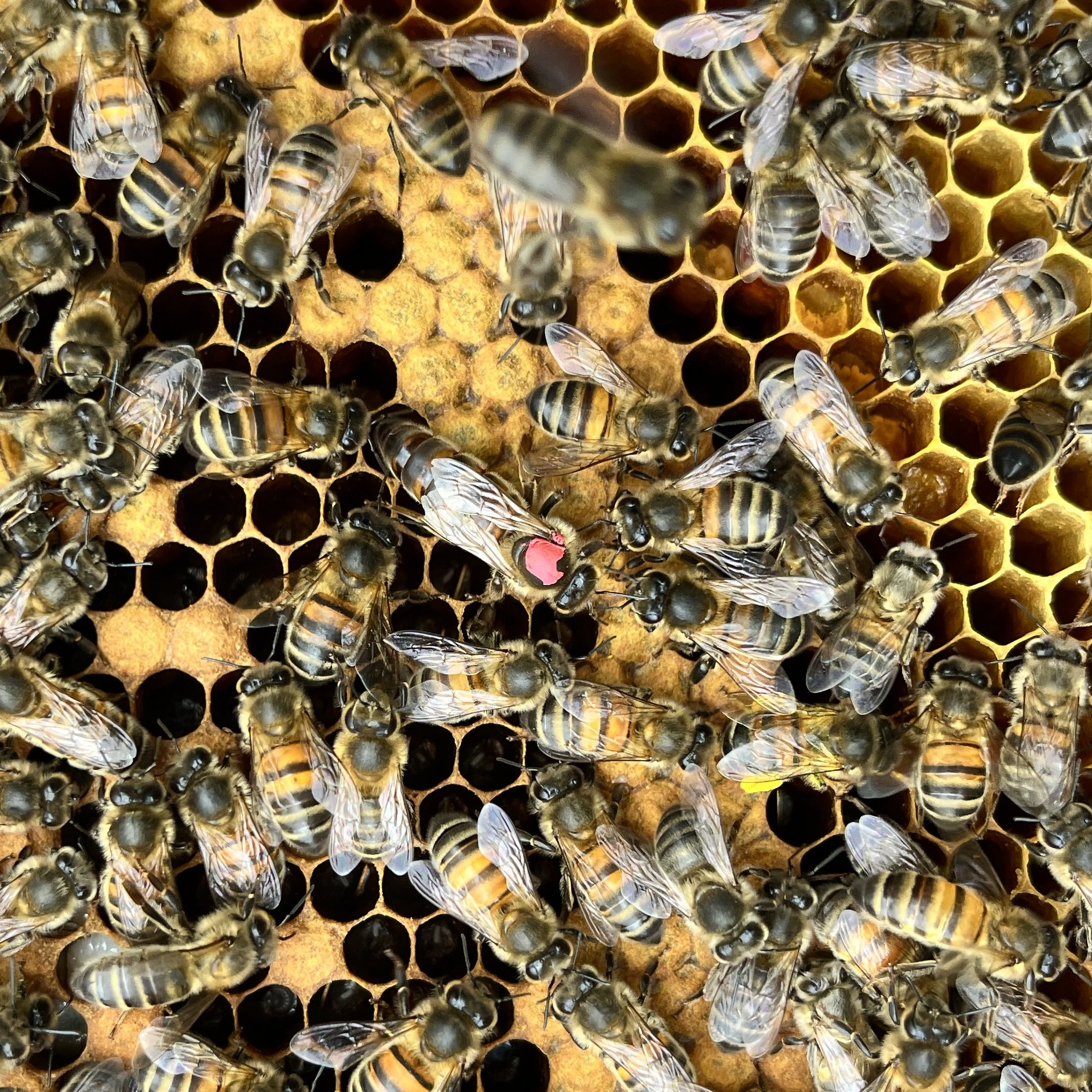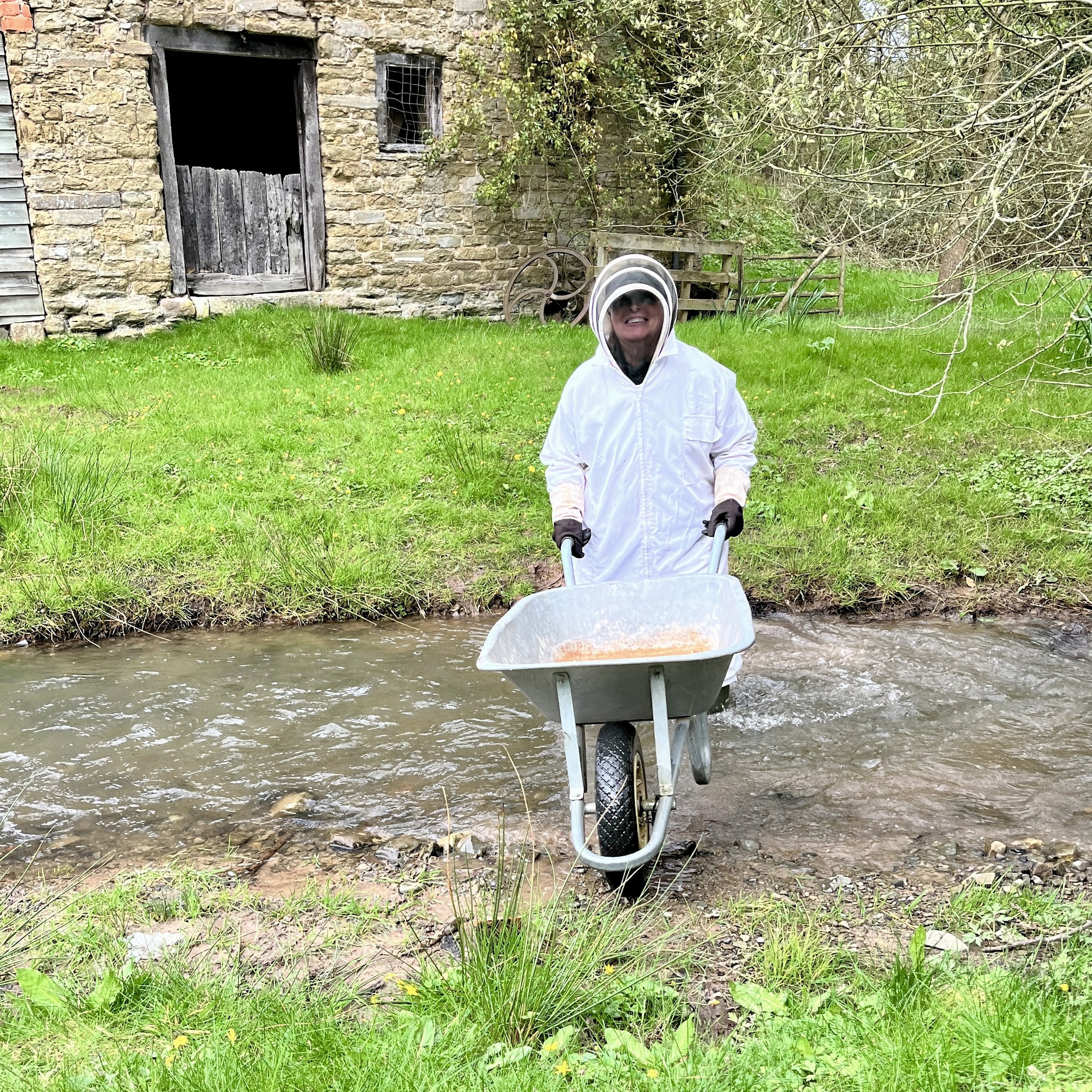NEW YEAR... NEW BEEKEEPERS
JANE LAWRENCE
How fabulous it was last week to welcome a new beekeeper to the area. Like Challis and myself she has been gifted a hive of bees and, like Challis and myself were when this happened to us, knows nothing about beekeeping. To be clear, she wasn’t presented with a hive of bees… her neighbour is retiring from beekeeping and asked if she was interested in keeping bees and, if so, she could have his hive. She contacted Challis, who contacted me, and asked if she could go through a hive of bees before making such a commitment.
Well, this was music to my ears as many people believe, and, I’m going to say it… because they do… that if they put a hive of honeybees in their garden - voilà they’re a beekeeper! No sir, this does not make you a beekeeper; what is does is merely mean you have honeybees in your garden and they may or may not survive, more likely not.
This is, pardon the pun, something I have a real bee in my bonnet about. To be a beekeeper - a keeper of the bees - you should join a local beekeeping club and learn how to look after them. Not only do you learn how to look after them, but, by doing the beginners course, you have support and, Brucie Bonus, you make friends with the same interest as you!
Below is an outline of the Ludlow & District Beginners Course, full details of which you can find by following this link. ludlowbeekeepers.org.uk/getting-started/introduction-to-beekeeping/ All beekeeping clubs do beginners courses.
Beginners’ theory evening classes held face-to-face or via Zoom. There will be eight sessions in total with four in-person and four via Zoom on consecutive weeks with the first held in-person
An afternoon practical ‘starter’ session at the Association Apiary near Ludlow and regular practical sessions throughout the summer, all subject to weather. NB we can lend beesuits for the first practical session but thereafter there would be a small charge. (We can give advice on what protective clothing is needed.)
© TIGER HALL BEES
Online advice via WhatsApp
A practical wrap-up session at the Apiary, on an afternoon in mid-September – date to be confirmed later in year.
The British Beekeepers Association (BBKA) Guide to Beekeeping book
Full Membership of L&DBKA for one year running to end December 2024
Full Membership of BBKA for a year (2024), which includes 12 copies of the BBKA News Magazine sent by post and BDI disease insurance for three hives for one year
Or you can do and introductory course on learning how to keep bees. This link is for Tiger Hall Bees in Shropshire. tigerhallbees.co.uk/product-page/learn-to-keep-bees-2-days where you can learn to keep bees - in a weekend. You will gain lots of practical experience with personal tuition by a government bee inspector.
Of course, where ever you are reading this Google beekeeping club near me or beekeeping course near me and you’ll find what you’re looking for. Or, like Jane, ask a friend who keeps bees to let you visit their apiary and see inside a hive, then do the course and/or join a club once you feel this is something you would like to do/undertake.
You see, this alone tells you there is more to it than just putting a hive of bees in your garden. They are wild creatures that we, over the centuries, have ‘domesticated’ and, just like a cat, horse, dog, cattle, sheep… need looking after properly.
Ooooo… that sounded like a bit of a rant. I guess it was, because, honeybees are live creatures and they’re such an important part of our ecosystem, they live in huge colonies and if not looked after properly could spread diseases to other bees and in the end will die.
As Kathy Lovegrove – Mount Edgcumbe native honeybee reserve - sums up perfectly…
“Every beekeeper is in beekeeping for a reason. I feel I can make a difference. I don’t think beekeeping is the right word, I see it more as bee management. If we are going to put bees into a box for our convenience then we have a responsibility to make sure they are happy in there and we are meeting their needs. “
And so… back to our lovely new beekeeper, Jane. She took to it like a duck to water. The weather was lovely and we had the opportunity of doing a proper hive inspection of Challis’s bees. We opened up the entrances on my hives to the summer entrances and, having had a quick look inside my hives to see how many frames were covered with bees, added supers to all the hives. (We have rape fields nearby and they soon stock up, Below are a couple of fun images and a pic of Challis’ rather lush queen!
The picture on the right makes me laugh because… when I left The Chalfonts Beekeepers’ Association, Bill, the then Chairman, asked if the Apiary where I was going to keep my bees was “accessible.” I felt a nervous twitch come over me when I looked him in the eye and said “of course!” Eek… I didn’t mention the little stream, which when it rains becomes a raging river, as the place is absolutely beautiful and who cares if it takes a bit more of an effort to get to the bees. It’s worth it!
So we are off and running and my notes have begun. I have given one of my hives to Challis, as she sadly lost one of hers last year and I am now down to four. But worry ye not, they will soon become 5, 6, 7 or maybe 8… who knows.
The forcast this week is for blustery showers, but Friday looks like a good day. Fingers crossed, I’’l be at the apiary, tending to the bees and taking lots of pictures for next weeks blog.
Have a great week.
“where there are bees there are flowers, and wherever there are flowers there is new life and hope”
(Christy Lefteri)




